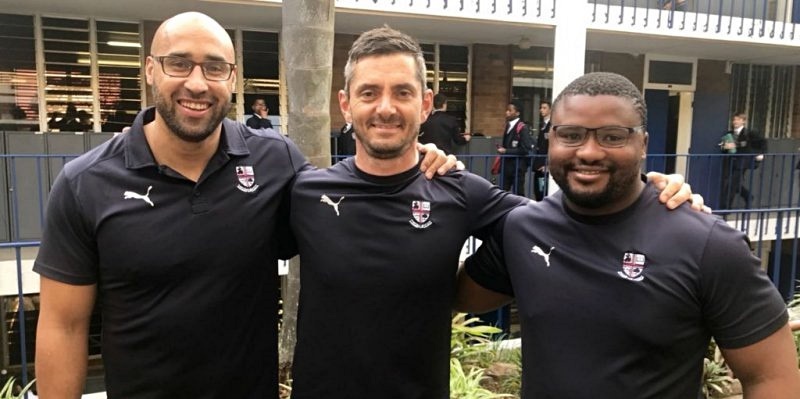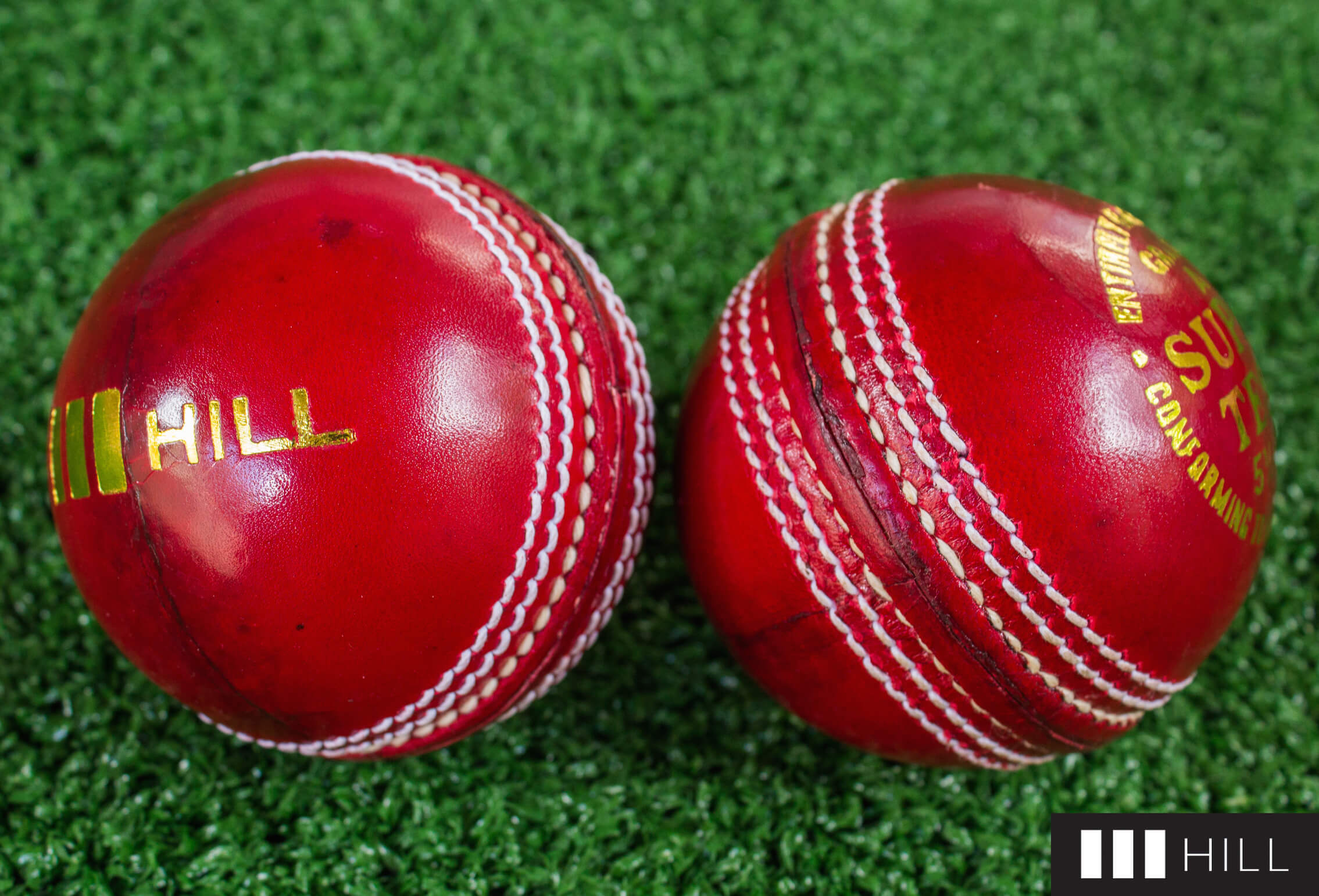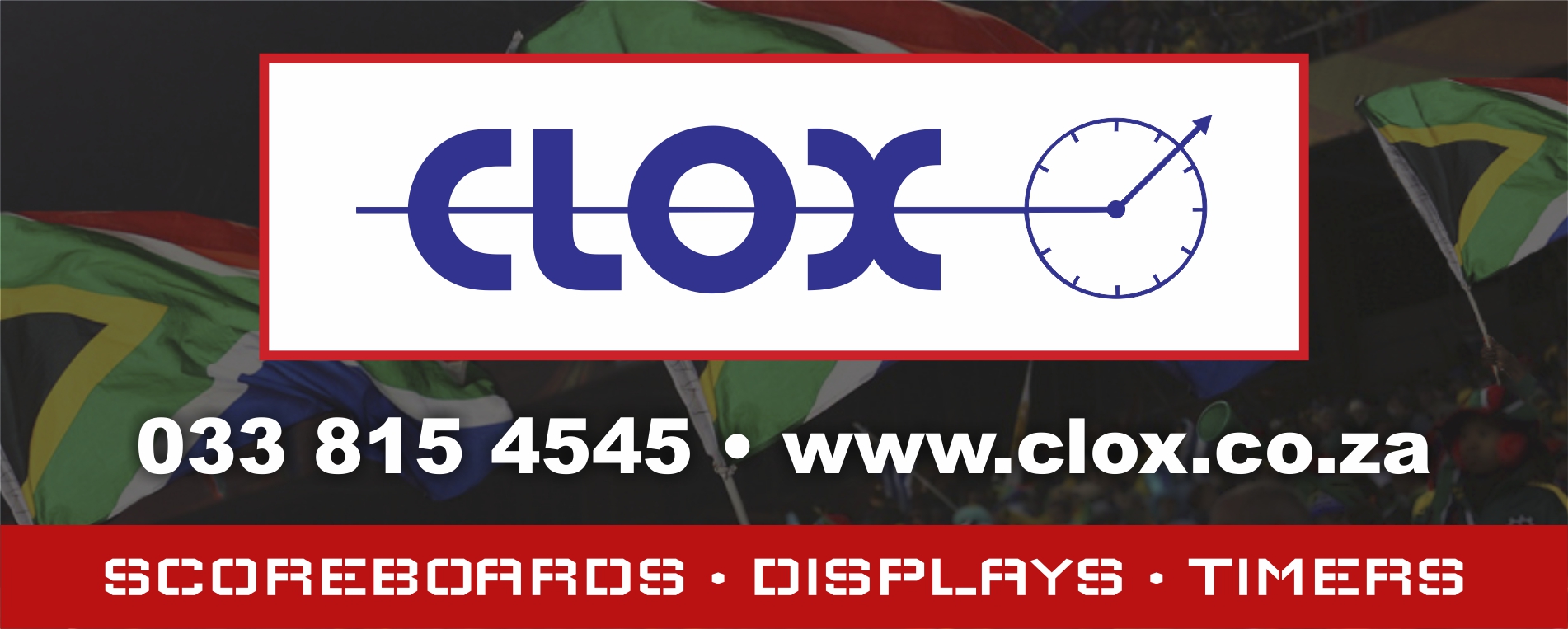Westville is in Director of Sport Waylon Murray’s heart

29 June 2020 – Sport has played a defining role in the life of Waylon Murray. As a schoolboy, it led him to Westville Boys’ High (WBHS), then on to a professional rugby career, during which he wore the green and gold of the Springboks, and then, more recently, it led him back to WBHS.
In his primary school days, he attended Berea West where he initially excelled at cricket and athletics. “I really enjoyed my time there and I had a lot of positive people steering me in the right direction, especially with regards to sport,” he said in a recent chat with KZN10.com’s Brad Morgan at WBHS.
His mother did not want Waylon playing contact sports, but an approach by the Principal Philippe Paillard led to her consenting to Waylon playing rugby in grade 5. He ran out at eighth-man but, he admitted, he was undersized.
“Even when I got into high school, I was tiny in comparison,” he reckoned. “I had a growth spurt in the middle of grade 9 and into grade 10. I was also a year younger than most of my classmates. I finished school at 17.”

When it comes to planning your next school sports tour look no further than former Hilton College first XI captain Craig Goodenough who’s been there, seen the movie and bought the T-shirt factory.
Waylon’s move to high school also coincided with a move to the backline due to his speed and footwork. “I enjoyed tackling, so I gravitated towards centre. It was close to the action. I started in the pack and then ran away from it when I got into high school,” he said with a laugh.
Although many of his classmates made the move to Westville, for a long time Waylon had no idea what lay in store for him regarding a secondary school destination. He explained: “At that time, I didn’t come from a privileged background. Philippe Paillard suggested, with the help of a few teachers, that I apply for a scholarship. I didn’t know where I was going to be. I was very fortunate that sport gave me an opportunity at Westville.”
As the son of a single mother, he would not have had an opportunity to attend Westville without that scholarship, Waylon said. “Nestor Pierides and Trevor Hall decided to take a chance on me and I came to the school.”
Initially, it took him a little time to adjust to Westville because he was, in his own words, “very introverted”, but he felt protected because of the support of Nestor and Trevor. “They were very supportive and they gave me a lot of opportunities to excel at school. My mom lent on the school a number of times when she couldn’t manage and every time they helped and were there for me.

Hill Premium Quality Cricket Balls stay the distance. www.hillcricketballs.co.za
“Being involved in team sport, even though I was socially awkward to a degree (in grade eight, I was still trying to figure out who I was), I was very grateful that I played with many good leaders and good people. It was helpful that I could play sport, coming in as a small fish into a big pond.”
Westville has a well-earned reputation for academic excellence and that, fortunately, was not a difficult transition for Waylon. He explained: “I have always been a disciplined person…and I assumed the role of head of the household (at least in my head) because my mom was a single parent.
“I always carried that weight of expectation with me. Whatever I did when I was at school, I was incredibly disciplined, which helped me in my [rugby] career. Obviously you need talent, but I wasn’t the most talented rugby player to ever have a professional career, but I did know how to be a professional and work hard. That helped me jump start my career.”
Sport helped Waylon integrate into life at Westville and he excelled in many different sports, playing for the 1st football team for three years, the 1st cricket side for three years, the first rugby team for three-and-a-half years [before the introduction of Bok Smart, which nowadays would have prevented that happening]. He also shone in athletics: in hurdles, long jump and the triple jump.

In 2018, Waylon presented his Springbok blazer to Headmaster Trevor Hall. The blazer now resides in the WBHS Griffin Room. (Photo: https://www.facebook.com/westvilleboyshighschool/ Westville Boys’ High on Facebook)
He named Doc Cowie as being a big influence on his cricket. Waylon was an opening bowler and middle order batsman who in matric played with future Dolphins’ batsman Martin Bekker and future Dolphins’ all-rounder Robbie Frylinck, who would go on to play T20 cricket for South Africa.
“I used to bat a lot in the middle order with Robbie Frylinck. He’s obviously matured and got a lot better after school,” he smiled. “I remember a lot of innings where we batted together, and we also bowled together, of course.”
In his matric year, when he was also the Head of School, he found that he had lost some of his love for cricket because of the long hours it demanded of its players. He started to turn his focus towards rugby. “I thought that was maybe a sign that I needed to concentrate more on rugby, even though I continued to play first team cricket. In football, I was never amazing, but because I was good at most sports I could manage to some degree.”
He added: “I enjoyed playing different sports. Looking back on it now, I am very grateful that I knew every season Nestor would come to me and say what he needed me to do. It was quite refreshing; after a long rugby season you look forward to football, and after football you look forward to cricket.”
In matric, though, there was disappointment when he missed out on selection for the KZN Schools rugby team. “I had a good year, but I was a bit young at only 16-and-a-half,” Waylon said.

The Westville 1st XV of 2003 included Waylon Murray as captain and Njabulo “Jabz” Zulu, his centre partner, who today coaches the Westville 1st XV with Jeremy McLaren.
“The Sharks at that time expressed an interest in me and they wanted me to do post-matric. I came back and fortunately I made the Craven Week team. I wasn’t on the radar for SA Schools or anything like that. But I played all the Craven Week games. We had a really talented team.”
The KZN line-up included Alastair Hargreaves (DHS), who captained SA Schools, future England international Brad Barritt (Kearsney), who also made the SA Schools side, and Westville’s Chris Micklewood (who would make SA Schools the following year) and Njabulo Zulu, among others. Zulu, Waylon’s partner at centre for Westville, is now coach of the Westville 1st XV with Jeremy McLaren.
Throughout his high school career, Waylon had paired with Brad Barritt when turning out for Pinetown and Districts. Missing out on the Craven Week team in 2003 was a big blow, but reuniting the following year was an enjoyable experience, he said: “It was good to be back with him that year and to finally get what I felt was recognition for my talent at the time.”
He joined the Sharks Academy in his first year out of school, but was in for a nasty shock when he didn’t crack the nod for the College Rovers under-20 side. But that proved to be fortuitous.

Attention to detail separates the best from the rest. Talk to the experts. http://www.hilliarandgray.co.za/contact/
“Someone approached me at the Union and said there was an opportunity for me to go to Jaguars and play in the Premier Division, so I would jump a few levels. He felt I had been overlooked.”
It proved to be a fantastic move for Waylon. At Jaguars, he joined up with players, many of them from the Sharks Academy, who were part of the development programme.
“It became one of the best teams in the Division at that time,” he said. “JP Pietersen was in that side, Dusty Noble ended up playing for the Sharks, Howard Noble played Springboks Sevens, so we were a bunch of misfits in a sense and we landed at Jaguars. We just exploded. We were beating teams with a really young side. Most of us were under-20, under-21.”
Dick Muir was coach of the Sharks at that time and re-introduced club trials which, again, proved to be to Waylon’s benefit.
“Dick Muir had three rounds of trials. The Sharks players could watch. At the final trials, if you were chosen (I think there were 30 players), you then had a chance to have trials against the Sharks.
“Dusty, JP and I ended up making it all the way through. From not making College Rovers, to going to Jaguars, to going to Currie Cup trials and being chosen for the Currie Cup squad that first year was an incredible, fairy tale start for me.”

Check out the Cell C personal and business contracts at https://www.cellc.co.za/cellc/contracts
It was a remarkable elevation in a very short time and it was mind-blowing for the young centre. “I was star-struck. I was a year out of school and suddenly playing with these professionals I looked up to,” Waylon said. “But I was very fortunate that the Sharks had a very experienced group of leaders at the time. A lot of youth was injected, so there was a really nice mix.
“John Smit, AJ Venter, Percy Mongomery, all these guys that were in that group did so much for the development of the young guys. It was a really nice culture. You weren’t afraid to fail. It was a good place to be. We went on to have a good season a year after.”
His debut for the Sharks came against Griquas at King’s Park. In a game he doesn’t remember too clearly, one incident stood out: “I remember chasing through a kick and thinking I was about to score a try and Henno Mentz came in and got there before me,” he said with a rueful grin. “It’s all these weird memories. The pace of the game meant there was no let-up. For me, the whole game was over in a flash.”
Waylon had started studies in marketing when he joined the Sharks Academy, but his rapid ascent to the senior team soon put them on hold. In retrospect, he said, that was a good thing as marketing was not something he was interested in at all.

A screenshot taken from a YouTube conversation, dated 25 April 2020, between Waylon Murray and Jabz Zulu during the Covid-19 lockdown (Video: https://www.youtube.com/watch?v=h9HxFTxaywQ)
By 2007, Waylon was in the Springbok reckoning and when Jake White opted to rest his frontline players ahead of the Rugby World Cup, Waylon got to pull on the famous green and gold jersey during the Tri-Nations.
Then, when Jean de Villiers was injured in the first game of the World Cup, it appeared that he was in line for a call-up to the biggest tournament of them all. Jake White, though, had other plans and opted for Wayne Julies, a player he was more familiar with, but one who had played little rugby for the Bulls that season. It hurt, Waylon admitted.
Nonetheless, during that season he got to spend valuable time with a very experienced Springbok squad. “I absolutely enjoyed being a part of the set-up,” Waylon said. “That Springbok team was really special in terms of talent. They knew how to win and they were a different breed.
“I stayed with them for a couple of months, even in the games I wasn’t playing, as part of the tour party. That was enjoyable. I got to spend time with incredible players, some of the best to ever grace the game.”

When the match is tight and every run counts, you can count of Clox Scoreboards of KZN. http://clox.co.za/
In 2007, Waylon also helped the Sharks top the Super Rugby table. They then downed the Blues 34-18 in the semi-finals at King’s Park to secure a home final against the Bulls. In a thrilling back-and-forth showdown, the Sharks were pipped 20-19 in the dying moments of the title-decider after a Bryan Habana try which had resulted after a disputed steal in the loose by Pedrie Wannenberg. It is the closest the Sharks have yet come to lifting the Super Rugby title.
As a young player making his mark, considerations of playing elsewhere were not at the forefront of his thinking but, after a very good run of over five years with the Sharks, Waylon found himself with a crucial decision to make when the Lions made an approach for his services.
“I think it is a crossroads for every professional rugby career,” he said. “You mature with the game and you learn to have honest introspection with yourself, including when it is the right time to go. I remember at the time the Sharks still wanted me to stay, but I had had a couple of injuries. I went to the Lions.
“It was a hard decision to leave, but I was probably going to get more opportunity with them. It was difficult leaving my safety net. As a competitive person, you want to prove people wrong and show you can come back from injury, even stronger. There was unfinished business. Going to the Lions felt like a fresh start.”
The transition was difficult in the beginning, and Waylon questioned himself, asking why he had made the move. But those misgivings disappeared. “When you push through an uncomfortable space and just stay and hang on, you get the reward,” he said. “That was the case with Joburg. I absolutely loved it. I loved playing for John Mitchell. It was nice to get the full backing of a coach.”
Mitchell has earned a reputation as a tough coach, but it was his straight-forward nature that appealed to Waylon and he took lessons from that approach. He explained: “John didn’t skirt around honest conversations and I enjoyed that. That’s how I have tried to maintain my relationships afterwards with coaches. You tell me exactly what you are thinking, rather than let me assume what it is. To have those hard confrontational talks, especially in pro sports, can be difficult. But I would much rather have that honest feedback.”
Towards the end of his time with the Lions, Waylon underwent a knee operation, which ultimately led to him leaving the union and signing with the then Southern Kings. Injuries, he said, are something every player has to deal with through the course of a season.

Take a 5-star break from life in the fast lane. Contact Fordoun CEO and former Michaelhouse rugby star Richard Bates for your well-earned break. https://www.fordoun.com/
“I think every rugby player, to a certain degree, never comes into a match fresh, even if they are injury-free. You are always carrying some sort of knock. It’s about trying to get through the season and staying as fresh as possible, which is, I suppose, the nature of the game. Injuries are tough [to deal with], especially when you get a bit of momentum. I was hurt at different times when I had built up momentum.”
Recalling the first time he had to deal with a serious injury as a professional player, he said it was challenging, but also a time of growth: “The first time around, it is quite a dark place to be. You can’t see the finish line and you are forced to focus day in and day out on what you are doing. It’s quite tough to find motivation. In that time, I learnt to find some inner resilience, in terms of being more professional and setting new goals, smaller goals, and managing them.
The Southern Kings’ experience was memorable, he said, because of the people of Port Elizabeth and how they wholeheartedly supported the team.
The next five years were somewhat nomadic as he turned out for the Bulls, the Sharks again, and the Kings after that. In 2016, he tied the knot, marrying Nicci Goodwin in a wedding that was shared on Top Billing. Then, in 2017, he moved abroad to join the French Fédérale 1 club Mâcon. It proved to be a pivotal decision in Waylon’s life.

Waylon’s wedding to Nicci in Durban was a stylish affair which was featured on Top Billing.
Recalling that time, he said: “I went to France. My son Grayson was born there. It was an incredibly difficult time, but I loved France. I was there for 16 months, not very long. I should have gone earlier. I was with Mâcon, so I was close to Lyon. It was always a dream of mine to get overseas. I was not playing in the top division, but it was still a chance to travel.
“That season put a lot of things into perspective. I didn’t feel a pressure not to achieve – I was always professional and I worked hard, no matter where I went – but understanding where I was in my life, what I wanted next, and what I wanted for my family became clearer and the decision became a lot easier as the season went on. I could have milked another one or two seasons, but I thought it was time to have a little bit more stability.” The question became what form would that stability take?
“I had spoken to [Westville Headmaster] Trevor Hall throughout my entire career,” Waylon said. “I had reached out to him when I first got to France and asked how things were going at the school. We started to talk a little bit more and he told me that if I wanted to come back he would create an opportunity for me, which would give me a chance to give back to the boys through my experiences.
“At the time it wasn’t at the forefront of my thinking, but near the end of the season, after my son was born, I wanted to start afresh and try something different, and put my mark on a different project.” The move to Westville was agreed upon.

Waylon with Guy Coombe, who coached the 2003 Westville 1st XV that also featured Jabz Zulu, and senior sports officer Thomas Jackson. (Photo: https://www.facebook.com/westvilleboyshighschool/ Westville Boys’ High on Facebook)
When he arrived at the school, Waylon was tasked with guiding, counselling and supporting high-performance players across all sports. But the position of Sports Director was soon to become available.
He explained: “When I came here, Sharmin Naidoo was the Director of Sport, but he was in the process of leaving. I had the opportunity to start something different with the Sports Department. Sharmin was here for 10 years and he did incredible work, but I wanted to do things in a different way.
“I wanted to educate and help the kids to understand that sport is great and we would like [some of them] to have professional careers, but what is more important is your contribution to the world and how well-rounded you are when you come out of the school. It is about managing expectations and trying to create good individuals that are going to return to our legacy when they leave school.
“If they make it as professional sportsman, so be it. For me, what keeps professional sports going are the kids that continue to play after school, including socially. That’s why I always encourage kids that if it is their passion, in rugby, for example, but you’re not making it professionally, just play because you love it. There is a shelf life to your sporting time and you won’t have those gifts forever.”

“Megaprop prides itself in offering a WHOLE OF MARKET solution to your property investing in the United Kingdom.” With over 30 years’ experience in the SA and UK property markets Maritzburg College Old Boy and well-known former wicketkeeper/batsman & hockey striker Arthur Wormington is your go-to man. Contact Arthur
It is important, too, that boys should enjoy the process of learning and growing together and not just focus on fixtures and results, he added. “I tell kids they always think about their big match on the weekend, but the actual room for growth is in the week.
“I recently spoke with Brad Mooar, who is an assistant coach with the Crusaders, and he was a really good mentor for me, because he was with the Kings before he went to the Crusaders, and he always used to tell me not to worry about the weekend, the week is where you have fun and grow. The matches are extra. As soon as you look too far ahead you stumble.”
Returning to Westville has been an enjoyable experience, Waylon said: “It is a very supportive environment and I think that’s always what makes Westville unique. It’s a really comfortable place where you feel you can be yourself.
“For me, it’s that mind-set of being of service to others, so I felt when I got here there were so many people that wanted to help. I am the type of leader that doesn’t want to have all the answers. I want to lead and grow with people. You learn from others and you get ideas from them.
“I am really grateful to be able to come into a place where I can be creative and try to do something special in a school that has changed, but which has maintained the foundations it was built upon.
“For me, it’s kind of a fairy tale [to return to Westville] because during my rugby career it was tough going contract to contract and moving to new places. Now, I have come to a place where I can finally breathe and relax, where I don’t have to worry about getting up and performing. It’s a different type of pressure. Being in this environment is very conducive for growth.”

Back in the Westville colours and loving his job as Director of Sport, Waylon Murray.
Casting an eye to the present day, 2020 looked poised to be a memorable year for Westville sport, especially the winter sports of rugby and hockey. The rugby team was expected to be one the school’s best teams yet, while the hockey side was coming off an undefeated 2019. But then Covid-19 flipped school sport and the world on its head.
Reflecting on what Westville and the school’s leading sportsmen have missed out on, Waylon said it would have been great to have outstanding teams, but the focus has switched to helping the boys deal with the disappointment of missing out on their season: “We’ve tried to be in constant conversation with the boys in terms of what they’re thinking and how they’re feeling and not concentrating on the loss, because that is what it feels like.
“Expectations were high and they wanted an unbeaten season, but it is sport. We hoped the season would turn out that way. We don’t know now and will never know [how it would have turned out]. We know who we are and we understand the boys are most important to us.”

Get a firmer grip on your possessions with KZN’s Titan Technologies. https://www.titantech.co.za/
He expects them to deal with the setback well, he added, saying character and resilience define the Westville boy.
“We’ve got a great leadership group under Gavin Sweet, who does our leadership,” he added. “I work closely with Gavin and share a lot of ideas. We do a lot of videocasts, interviewing people, so we are really like-minded in that sense. We definitely support each other when we are dealing with an issue. That culture of collaboration is vital. We grow as people, so leadership and emotional intelligence are important.”
Concluding, he said: “It’s been incredible coming back to see what has happened at Westville, the successes the school has had, the good years and the bad years. There has definitely been a shift since I was in school, with Westville continuing to rise and excelling in sport and academics.
“We always say sport is a good outlet for the boys, but academics is their primary focus. They need to understand that.” And those words, coming from a former professional sportsman and the school’s Director of Sport, are sage and pleasing words indeed.

It is imperative for coaches to know what works for you. Get in the driving seat with the tried and tested. Contact Trish right now at info@trishsutton.co.za

